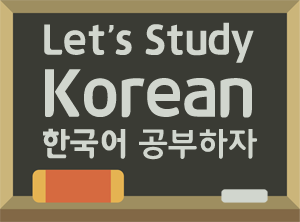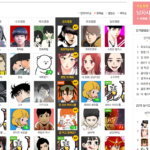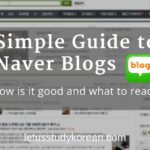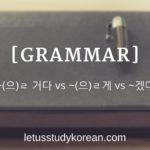(Estimated reading time: 10 minutes)
This is probably one of the most burning questions most Korean learners would have, especially those just starting out or reaching a plateau in their Korean proficiency.
I’m going to share some of my personal experiences to give you some ideas. I’ll also include what I’ve learned after reading Peak, a book about achieving excellence in a skill or expertise. I previously wrote a post “Studying Korean in a school VS self-study” a long time ago and this will serve as an extension.
Don’t worry if you don’t wish to read that – I’ll give you a quick summary of what I touched on in that post before starting off. But if you do, of course, you’ll make me happy…
Anyway, I’ll just summarise it in one paragraph:
For beginners, it’s best to start with familiarising with 한글 (Hangeul/Korean alphabets) and getting a teacher/tutor. Foundation is important so getting basic pronunciations and grammar right is very important. After attaining some proficiency (preferably high-intermediate/advanced and above), self-study might work better. Starting with self-study right off the bat is like trying to run before even trying to walk. You need to be able to identify mistakes and correct them before going full self-study. Until then, work with a teacher or tutor.
Now that we have that out of the way, here are some questions you have to ask yourself when thinking, “How do I know if I need a Korean teacher or tutor?” If all of your answers are “no” to these questions, chances are high you would do better learning from a teacher or tutor, at least until you are confident with answering “yes” to (some of) these questions.
Let’s start with the most pertinent question.
Are you motivated and disciplined?
Let’s face it. We all need to be nudged at some point of our lives to do something we know is good for us but we are just too lazy and procrastinate instead. I know because I’ve been there too.
Procrastination always seems like the best choice in face of tedious tasks. But we often feel guilty after procrastination. So if you know you need someone to motivate and discipline your studying habits, get a teacher. That would help keep your procrastination in check.
Without the motivation or discipline to study, nothing will even happen in the first place. A study schedule is boring and ‘old school’ but it works. No doubt about it.
Do you know what to study?
Knowing what to study is always a bother. Where and how do I start? That’s what I asked myself for almost a year before deciding to take classes.
Teachers or rather, schools and language centres all have a curriculum, at least for the beginner levels. And I can’t help but stress again – the foundation is really important in learning anything. And allowing someone who is experienced and native to guide you saves a lot of time – and money, since time is money.
Sure, you can buy a textbook with English translations to start or watch Youtube videos and follow along. In my opinion, though, nothing beats an actual teacher who actually interacts with you. This is where italki could work.
Or some people would visit language learning websites and read free content. But I’ll be upfront about this: most websites (including this one) are merely complementary resources. This is also one of the biggest reasons why I’ve tried as much as possible to provide content about many various ways of studying Korean.
It’s hard for text alone to properly guide your learning. Audio, video and pictures are great. But interactions and engagements are the keys to learning, which brings us to the next question.
Are you able to identify your mistakes and correct them?
If you can’t, getting past your plateau would be like pushing a boulder twice your weight up a slope. Without shoes.
From my personal experience, teachers are great because they’re able to pick out my mistakes. Pronunciation, choice of words, expression, grammar, you name it.
I’m personally at advanced proficiency (my conversation proficiency is that of a primary school student, though, according to feedback…) and I still find having a teacher extremely helpful. I personally engage a tutor to specifically tackle my conversation skills.
Pronunciation and grammar are not a huge problem for me anymore. But improving in areas related to the choice of words and expression – this can be barely improved through self-study unless you put in a lot of effort. I’d rather spend some money to get a teacher to help me but if money is an issue for you, I’d suggest you to self-study once you hit a certain proficiency.
So… how do you know if you’re at the proficiency to self-study efficiently? Let me introduce to you the concept of mental representations from a book titled Peak.
Mental representations
This is actually a psychology term and without delving into the technicals, I’ll try my best to explain it as simply as possible.
Firstly, think of our minds as computers. Our minds comprise mainly memories – both short-term and long-term. For short-term memory generally lasts up to a few days, max. Long-term memory, on the other hand, lasts years or even decades. This is not to say, though, that long-term memory will never be forgotten. Good mental representations tend to be long-term.
Our native language is registered in our long-term memory and thus, our fluency and proficiency in English. This is also why it’s generally easier for us to learn Korean through resources in our native language.
For example, whenever we learn new Korean words, we use all kinds of techniques to associate the new words with our long-term memory. The most common technique, of course, is to associate these words with the English translation. You can look at this as attaching a short-term memory to a long-term memory, which might work for some.
But if we have to constantly do real-time translation in our heads whenever we want to speak or write, wouldn’t that take A LOT more time? For learners, it’s essential to be able to read and understand the language rather than constantly translating back and forth.
The only way to commit Korean grammar, vocabulary and expressions to our long-term memory is to form meaningful connections to the meanings in our minds. Reading English translations is the first step to understanding and remembering those words but only through conscious effort to attach meaning to those Korean words can we remember them for a much longer time.
I’m not a Korean expert by any standards but based on my experience, here are just some of the mental representations you would definitely want to develop if you’d like to self-study.
Reading 한글 without romanisation
This is very important because there won’t be any romanisation when reading any Korean content. Also, romanisation is bad, in my view. It’s good for starters but get rid of the habit of relying on romanisation as quickly as possible.
You could search on Google “Why romanisation is bad for learning Korean” but my answer is this: Korean pronunciation is based on mouth shapes and there are 6(!) different romanisation systems. Also, romanisation just makes you lazy to learn and understand how 한글 works.
Key action point: Ideally, the mental representation of 한글 in our minds must be attached to mouth shapes and intonation instead of English alphabets. Other than continuously reading long passages of Korean, there’s no other way, unfortunately.
You will realise I include the romanisation in my Grammar and Vocabulary posts but those are just for beginners’ reference.
Identifying mispronunciations and correct oneself
Being able to read 한글 without romanisation is a prerequisite for this. If you can’t recognise 한글 in its actual form and pronounce according to the romanisation instead, chances are your pronunciation wouldn’t be on point.
I personally benefited a lot by using romanisation at the very start to form a basic mental representation of they kinda sound like. But I quickly stayed away from romanisation and forced myself to recognise the mouth shapes and intonation.
My pronunciation and intonation might not be perfect right now but I personally don’t have issues reading out loud. You can listen to my pronunciation speaking practices here. If you can’t, engage a teacher to pick out those mistakes for you.
Key action point: You could use Google translate to listen to the accurate pronunciation and try to imitate it as much as possible. Read passages of Korean text out loud and record. You could use Vocaroo or any other voice recording tools. Playback, listen, identify your own mistakes and correct them. Rinse, repeat.
Understanding of grammar particles
This is where your grammar foundation is very important, especially the really simple grammar particles. Without the basics set properly, you wouldn’t even understand simple sentences, let alone self-study.
The ideal mental representation is to be able to recognise what do the grammar particles in any given sentence mean. The same grammar particle can have different meanings in different contexts. Some grammar particles can be used interchangeably in certain situations too.
Key action point: Constantly review grammar particles, especially those that are very similar to one another, for example, ~지만 VS ~(으)ㄴ/는데, ~어/아/여서 VS ~(으)니까, ~고 있다 VS ~어/아/여 있다 and many more to come. I’m working on more of these because even Koreans get confused at times, let alone learners! Construct sentences with these grammar particles for better understanding and retention.
Forming proper, grammatically correct sentences
As long as you get grammar out of the way, this shouldn’t be a huge problem. One of the hardest parts about forming sentences is using grammar particles correctly and joining clauses.
Remember, forming proper sentences is crucial. It’s not just important for writing but also speaking! Also, forming sentences help in understanding what others speak too. Of course, writing sentences will be harder than forming and speaking sentences, at least for me. There’s time to write, read through and edit but speaking is different.
Key action point: Similar as the previous point, you have to constantly construct sentences. The best way, though, is to write a daily diary. Even if some of your sentences are wrong, it doesn’t matter. This is where you could possibly look for language exchange partners on apps like Bilingua and HelloTalk. Get them to help you and in return, you help them. This hasn’t worked particularly well for me but I have friends who have some level of pleasantness while using these apps. Well, to each his own!
Ending thoughts
It’s a really long article but thank you so much for making it through. I must stress that I’m merely sharing my own personal experiences with class teachers, italki tutors and a lot of self-study. This might or might not work for you but I believe teachers still work the best when learning anything. When it comes to mastery, though, you have to put in loads of solitary practice.
Of course, with the Internet, learning resources are becoming more easily accessible. But with the amount of information just floating around, the time spent sieving out garbage can be made up with spending a little money to engage teachers or tutors. Hope this helps you!
Check out the list of important links below to save time scrolling through this entire post!
Important links
Peak (I receive a very modest commission if you buy the book through this link at no extra cost for you.)
Studying Korean in a school VS self-study
My pronunciation speaking practices





